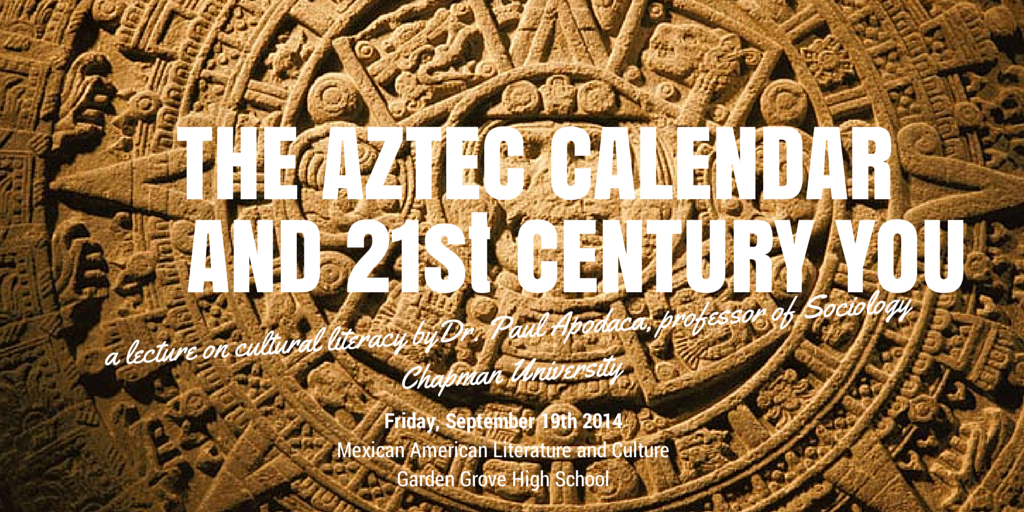WARNING: This is a tentative calendar for the week. I post this to provide my students with an opportunity to preview the week and to help them plan accordingly. Sometimes things go exactly as planned and it is amazing. Sometimes they don’t because we might finish an objective faster than anticipated. Sometimes what I believed would take ten minutes at the beginning of class ends up taking an entire class. Sometimes there are some mornings when I get ideas and decide to change EVERYTHING because something else seems better. Anyways, you get the picture: TENTATIVE…otherwise known as maybe, perhaps, we will see. As my grandmother used to say, “we make plans and the universe laughs”.
Monday 9.29: Intro to Perspectives of the Conquest Progress Check
UNIT GOAL: After investigating and analyzing perspectives of Early American encounters through texts which include Spanish account, Aztec poetry, 20th Century art and poetry, students will write an expository essay which evaluates the impact of European arrival to the continent on Native populations and compares perspectives of encounters between native populations and Europeans.
Objective: After completing notes on IMAGERY in Diego Rivera’s La Gran Tenochtitlan, students will be able to write an Analytical Summary
Handouts: La Gran Tenochtitlan,Analytical Summary
Homework: N/A
Tuesday 9.30: Perspectives of the Conquest
UNIT GOAL: After investigating and analyzing perspectives of Early American encounters through texts which include Spanish account, Aztec poetry, 20th Century art and poetry, students will write an expository essay which evaluates the impact of European arrival to the continent on Native populations and compares perspectives of encounters between native populations and Europeans.
Objective: After participating in Learning Stations, students will be able to compare perspectives of the conquest depicted by IMAGERY by completing Dialectical Journal
Handouts: Dialectical Journal
Homework: N/A
Wednesday 10.1: Perspectives of the Conquest
UNIT GOAL: After investigating and analyzing perspectives of Early American encounters through texts which include Spanish account, Aztec poetry, 20th Century art and poetry, students will write an expository essay which evaluates the impact of European arrival to the continent on Native populations and compares perspectives of encounters between native populations and Europeans.
Objective: After participating in Learning Stations, students will be able to compare perspectives of the conquest depicted by IMAGERY by completing Dialectical Journal
Handouts: Dialectical Journal
Homework: N/A
Thursday 10.2: Perspectives of the Conquest
UNIT GOAL: After investigating and analyzing perspectives of Early American encounters through texts which include Spanish account, Aztec poetry, 20th Century art and poetry, students will write an expository essay which evaluates the impact of European arrival to the continent on Native populations and compares perspectives of encounters between native populations and Europeans.
Objective: After participating in Learning Stations, students will be able to compare perspectives of the conquest depicted by IMAGERY by completing Dialectical Journal
Handouts: Dialectical Journal
Homework: N/A
Friday 10.3: Perspectives of the Conquest
UNIT GOAL: After investigating and analyzing perspectives of Early American encounters through texts which include Spanish account, Aztec poetry, 20th Century art and poetry, students will write an expository essay which evaluates the impact of European arrival to the continent on Native populations and compares perspectives of encounters between native populations and Europeans.
Objective: After participating in Learning Stations, students will be able to compare perspectives of the conquest depicted by IMAGERY by completing Dialectical Journal
Handouts: Dialectical Journal
Homework: N/A
